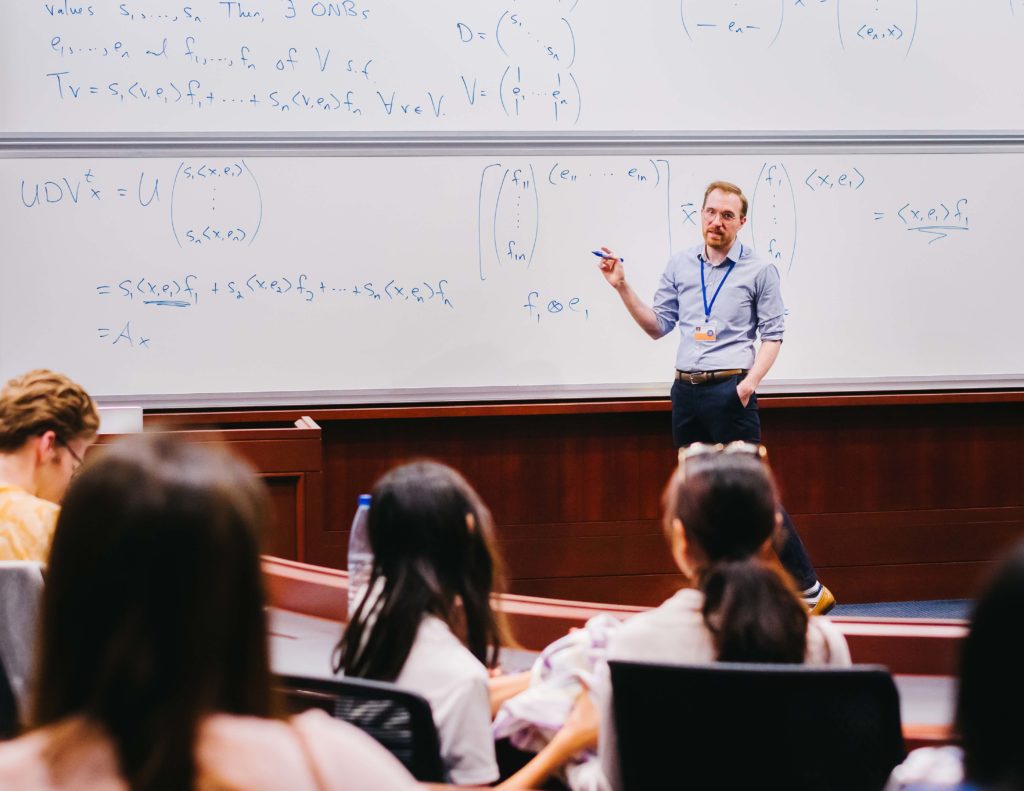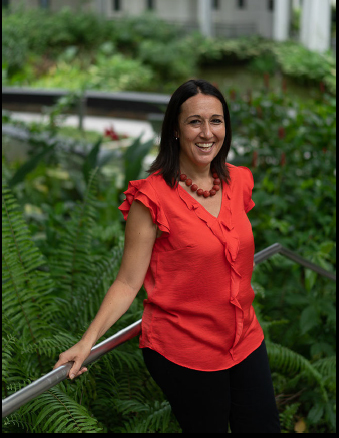Yale-NUS Centre for Teaching and Learning introduces two new roles for quantitative learning and experiential and community-engaged education
In the age of COVID-19, misinformation and false news pose a deadly threat to the legitimacy of science and public health. As such, quantitative reasoning has become especially crucial in helping students make sense of the vast amount of information in the world, decipher the truth, and put it to good use in their work and research.
 Dr Tim Wertz. File photo provided by Yale-NUS Centre of Teaching and Learning.
Dr Tim Wertz. File photo provided by Yale-NUS Centre of Teaching and Learning.
Yale-NUS College Lecturer of Science (Mathematics) Timothy Wertz believes that much of such misinformation is due to poor understanding of quantitative and statistical reasoning, and quantitative learning will give students important leverage as they navigate an increasingly data-driven world.
Dr Wertz is also the Coordinator for Quantitative Learning at the College’s Centre for Teaching and Learning (CTL), a new role created at the College last semester. As a liberal arts and sciences college dedicated to undergraduate education, the team at CTL supports the College’s goal to foster and advocate excellence and innovation in teaching and learning. The College’s small size has also allowed us to be nimble in adapting to changes as we harness the best and latest in technology and pedagogy to support teaching and learning. In this regard, Yale-NUS has identified quantitative learning along with experiential and community-engaged education as two key areas that will create relevance for our students in the post-COVID-19 world.
Dr Wertz explained CTL’s new focus on quantitative learning. “Firstly, enrolment in quant-oriented courses (especially in Mathematical, Computational and Statistical Sciences and Economics) is very high, which signals that the students are interested in those topics. Secondly, the College already provides support in writing via the Writers’ Centre, so we wanted to be more systematic in providing similar support in other key areas.”
In his first semester on the job, Dr Wertz focused on enhancing the existing peer-tutoring programme for quantitative subjects. Through consultations with tutors, faculty members and administrators, he learnt about the needs, opportunities and constraints of the system. He is now working on developing a broad policy to meet the needs of the different stakeholders. In addition to peer-tutoring, Dr Wertz plans to offer workshops on Excel, Git and LaTex in the future.
Valentina Zuin, Assistant Professor of Practice in Social Sciences (Urban Studies) has taken on the role of the CTL coordinator looking into experiential learning and community-engaged education.
Dr Catherine Sanger, Senior Lecturer of Social Sciences (Global Affairs) and Director at the CTL, provided an overview of the two roles. “Dr Wertz’s role is focused on mentoring and managing peer-to-peer learning (e.g, tutors and graders) in quantitative subjects and as a resource for faculty members who want to enhance quantitative skills-development in their courses. Asst Prof Zuin’s role is focused on supporting faculty members who want to integrate experiential learning into their courses and generating concrete strategies for enhancing experiential learning in the curriculum.”
Experiential and community-engaged learning are essential parts of the College’s mission to nurture its students into citizens of the world with a sense of civic engagement, social responsibility, and an ethic of service to their respective communities. Specifically, experiential learning has been a cornerstone in Social Science classes at the College. For example, “Methods in the Social Sciences”, a compulsory foundational module for Social Science majors, typically incorporates an experiential learning component where students learn interviewing and participant observation techniques.
 Photo provided by Asst Prof Valentina Zuin.
Photo provided by Asst Prof Valentina Zuin.
“Experiential learning is important to deepen students’ understanding of the theories studied in class, including the challenges that come with implementation. It provides opportunities for students to reflect on their methods of implementation and identify areas for improvement. Additionally, it motivates them to engage with the topics at hand by providing a problem that requires solving,” Asst Prof Zuin elaborated.
Overall, students emerge from experiential learning experiences with an enhanced ability to develop creative interdisciplinary approaches to problem solving and engagement with diverse modes of enquiry.
As she takes on the new role this semester, Asst Prof Zuin plans to focus on two key areas. She intends to support faculty members interested in incorporating experiential and service learning into their classes by putting together resources that can be used for different experiential learning methods. Tentatively, this also includes resources on reflection and assessing the impact of such learning methods. Secondly, she aims to highlight experiential and service learning opportunities that are already provided for in the curriculum. This encourages faculty members to engage and learn from one another.
“In our community where learning and living are closely intertwined, experiential learning is a key part of our interdisciplinary curriculum and co-curricular and residential opportunities. Through my work, I hope to support this goal and enhance the integration of experiential learning in our broader curriculum,” said Asst Prof Zuin.





